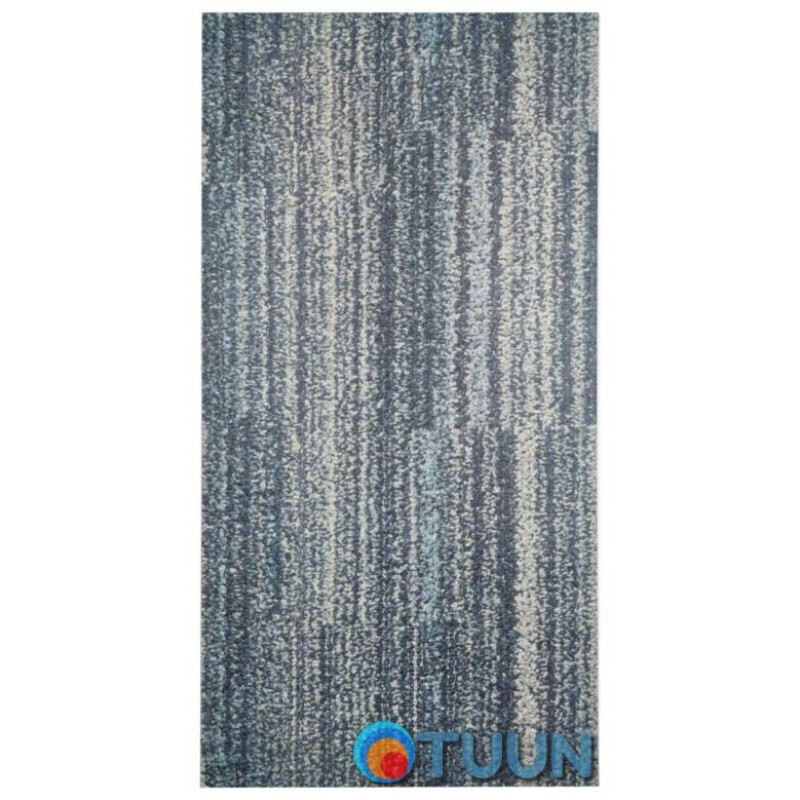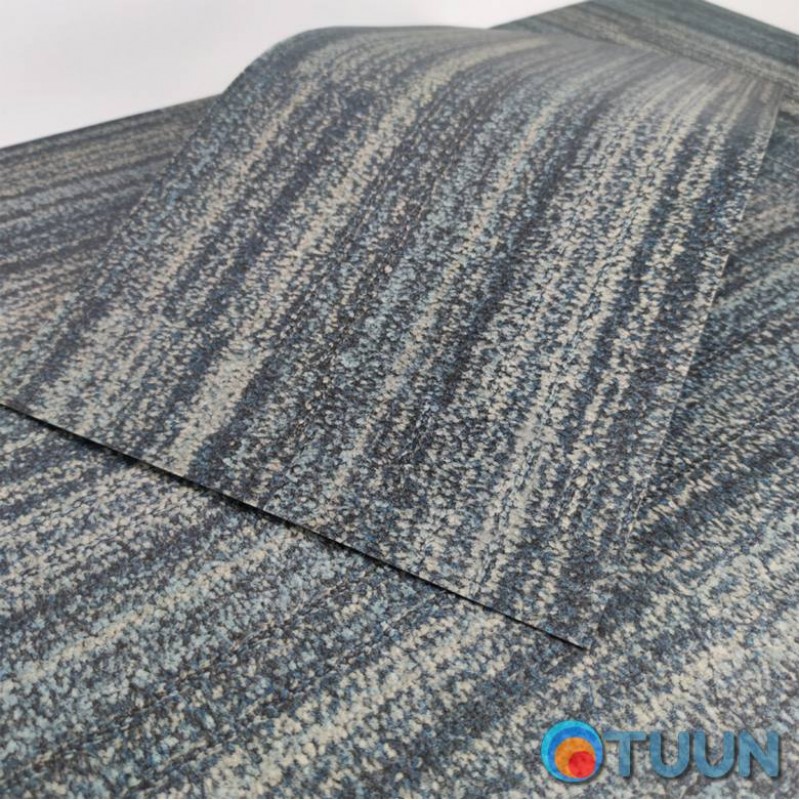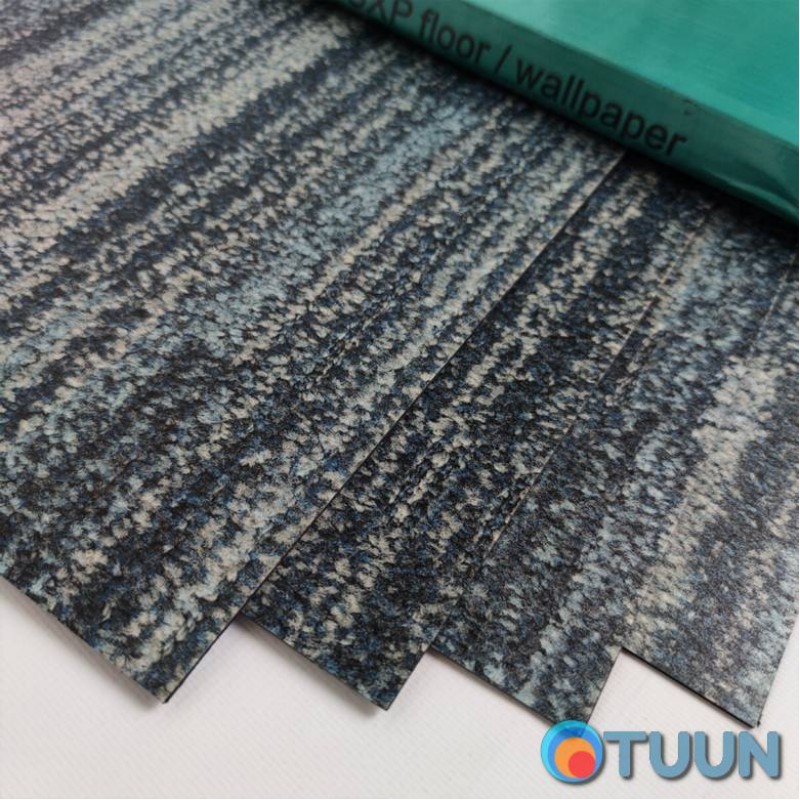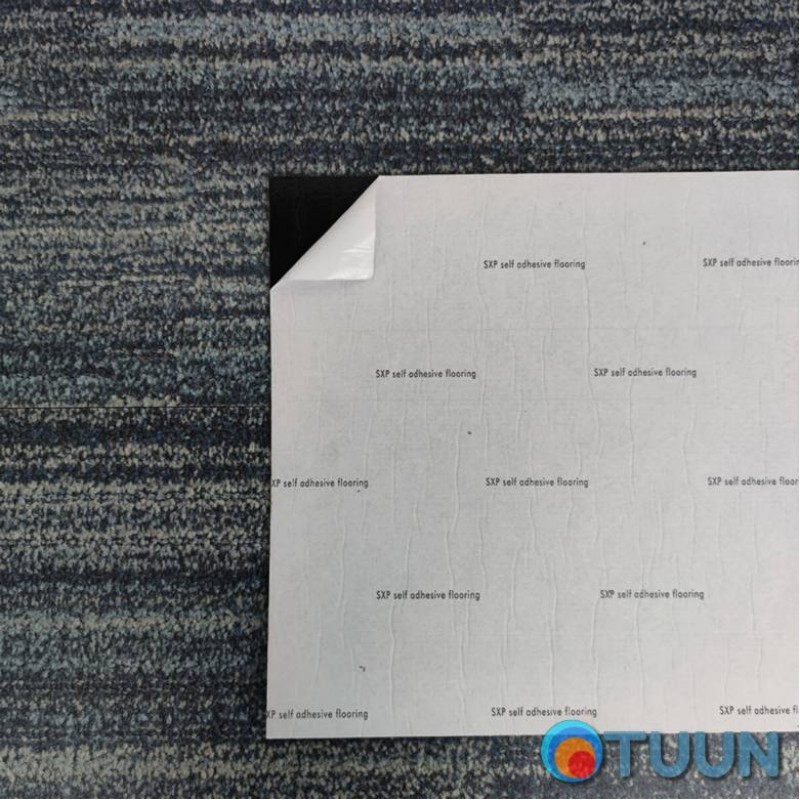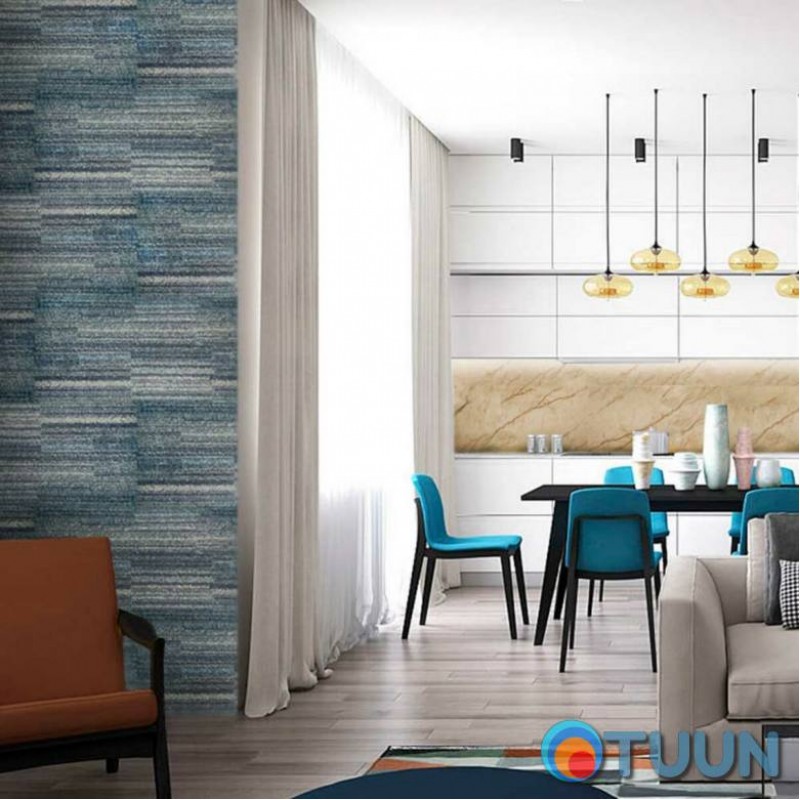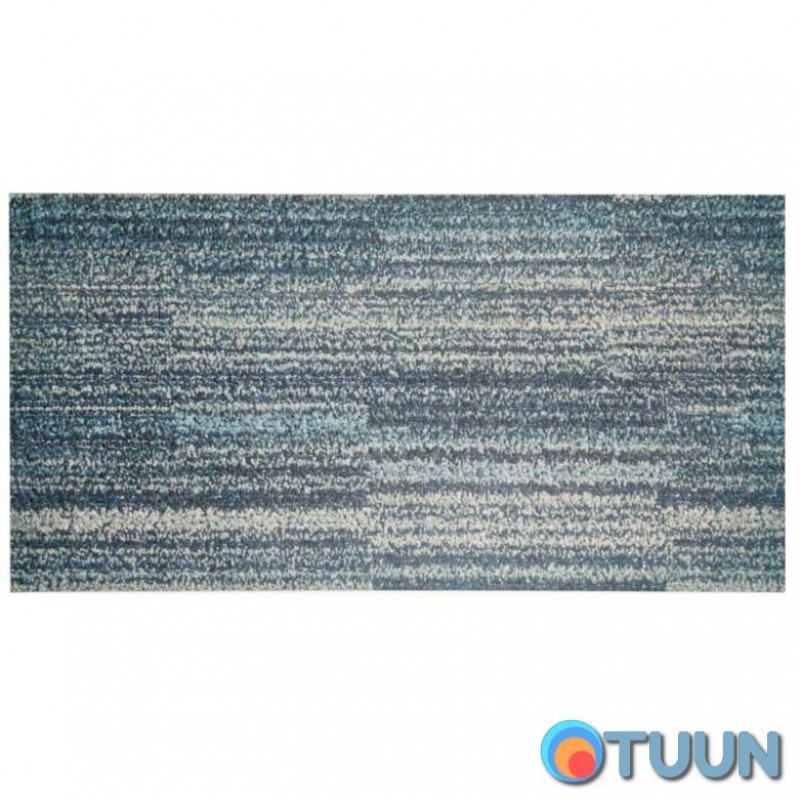Self-adhesive vinyl textured tiles, price for 1 piece. (SVP-102) Matte SW-00000292
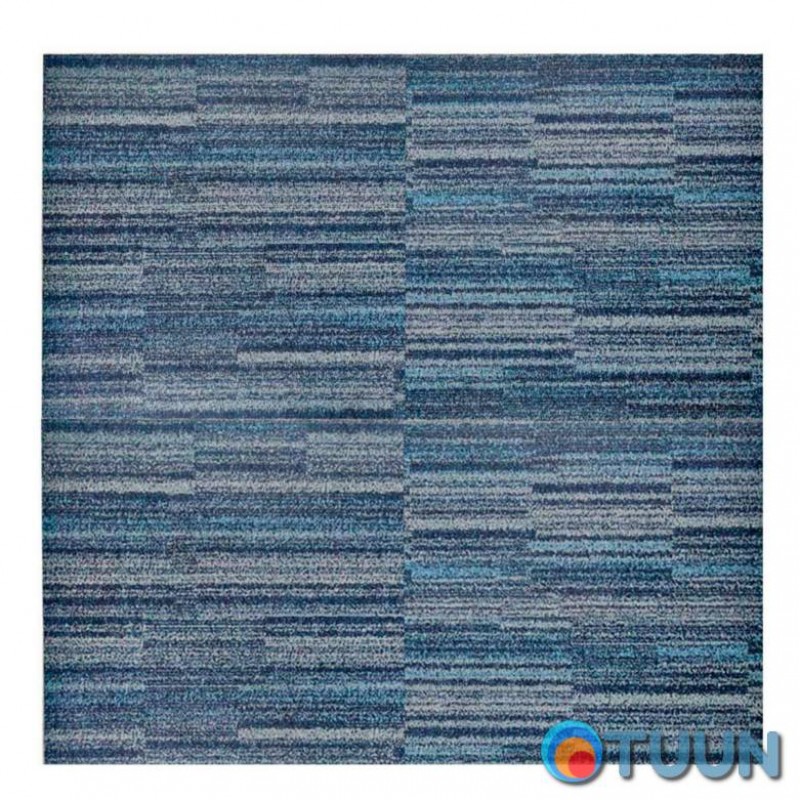
Vinyl self-adhesive tiles are a decorative material for interior decoration, easy to install thanks to the adhesive base.
The tiles come in a variety of designs, including colors, patterns and textures that imitate natural materials, making them suitable for a variety of interior designs.
Strength, durability and moisture resistance allow the tiles to be used in different types of premises on a variety of surfaces.
Material: polyvinyl chloride (PVC)
Dimensions: 60 cm x 30 cm x 1.5 mm
Weight: 60 cm x 30 cm – 115 g
Coating area: 60 cm x 30 cm x 1.5 mm – 0.18 m2, quantity per 1 m² – 6 units
Packaging: 28 pieces (5 m²)
Packaging dimensions: 62*61*3 cm
Texture: smooth
Material:
- Polymer layer: protects against abrasions and minor mechanical damage, ensures durability of use, and UV protection helps prevent fading, keeping the color rich, due to which the tiles have their original aesthetic appearance for a long time.
- Decorative layer: film with high-resolution color printing that completely imitates the texture of natural materials thanks to a clear and detailed image.
- Base layer of polyvinyl chloride (PVC): a polymer consisting of long chains of vinyl chloride molecules containing chlorine atoms, which makes the material resistant to chemicals.
- Foil layer:reflects heat waves, minimizes heat loss, improves the thermal insulation of the room.
- Adhesive layer:non-toxic base with a high level of adhesion.
- Protective siliconized paper: protects the adhesive layer from drying out and contamination, and can be easily removed during installation.
Temperature: under the influence of high temperatures it can change shape. In the kitchen area near fire sources, tiles should be installed at a distance of 30-50 cm.
Operation life: from 3 years.
Application: interior finishing work: decorating walls in all types of residential premises (kitchen, bathroom, living room, children's or bedroom, entrance area) and commercial premises (office premises, reception areas, shops, beauty salons or fitness centers, public places, workshops), furniture, doors and other flat surfaces.
Properties and advantages of the material:
- Easy installation: The self-adhesive layer makes the installation process quick and simple, without requiring additional glue, other materials or specialists. The material is laid joint to joint, it can be cut with scissors or a mounting knife, it does not diverge between strips, does not swell or deform. The cut percentage is 1%, which is the best indicator for wall coverings;
- Moisture resistance: Moisture resistant, an excellent choice for bathrooms, kitchens and other areas with high humidity. Suitable for creating a kitchen apron, can be glued near the stove at a distance of at least 30-50 cm;
- Durability: The strength and wear resistance of vinyl allows the tile to remain in its original state for a long period of time;
- Aesthetic component: a wide selection of designs that imitate natural materials and colors allows you to choose a coating that matches your style and interior;
- Easy care:Easy to clean and does not require special cleaning products. If an individual tile is damaged, you can easily replace it without the need for major repairs;
- Insulation: sound and thermal insulation;
- Environmental safety: made from renewable resources, the material is safe for health and the environment.
Calculation of the required amount of material:
- Measure the length and height of the surface to be pasted.
- Multiply the length by the height of each surface in meters and add up the results to get the area.
- For example, after measurements you received:
- Wall length 4.35 m.
- Wall height 2.48 m.
- 4.35*2.48 = 10.78 m²
- The resulting area must be divided by the area of one tile (600*300= 0.18) and rounded up:
- 10.78/0.18=59.93, round to 60.
- During the installation process, waste associated with cutting tiles may occur, so it is recommended to add 2-3 spare tiles to the calculation.
Installation instructions:
- Self-adhesive vinyl tiles can be glued to old linoleum, tiles, tiles, parquet, laminate, glass, paint, primed concrete with small irregularities and small potholes without special surface preparation, but if the surface has whitewash, then it is necessary to clean the surface from it.
- The installation room must be dry, the room air temperature is from +15º to +20ºС.
- You need to make sure that the surface on which you are going to install the tiles is clean, dry and level. It is necessary to remove any dust, dirt or oil from the surface, if necessary level the surface with a primer and allow to dry for at least 4 hours. The tile and surface must be at room temperature to ensure good adhesion of the adhesive base.
- Gradually begin to remove the protective paper from the back of the tile to expose the adhesive surface;
- It is necessary to start installation from one corner and carefully press the tile to the surface, ensuring that the tile is installed evenly and neatly, avoiding the formation of bubbles or wrinkles;
- Tiles can be cut using a knife or scissors to adjust the tiles to size, especially around the edges and corners of the surface;
- To join the strips, it is necessary to remove part of the protective paper from the next tile, place the tile edgewise to the junction with the glued tile, applying the adhesive base to the surface, while simultaneously smoothing the glued part;
- The tiles must be pressed firmly against the surface by hand or with a rubber roller to ensure good adhesion between the tile and the base.
Instructions for partial repair of a vinyl surface:
If the coating is partially damaged, remove the damaged tile using a utility knife or spatula and insert a new one, removing the protective paper and pressing it firmly to the surface.
Answers to frequently asked questions:
- Can self-adhesive tiles be glued to tiles? Yes, this type of vinyl covering can be glued to tiles, after first cleaning it from dust and dirt, be sure to degrease and dry it.
- What to do with a surface that is covered in greasy deposits?Use grease removers to remove the deposits, then dry.
- What size of unevenness is allowed for installing adhesive-based vinyl tiles? Recess up to 5 mm, convexity up to 3 mm. Before preparing for gluing, it is necessary to sand all uneven surfaces with sandpaper.
- Is it possible to glue self-adhesive vinyl tiles onto old linoleum?Gluing onto old linoleum is the fastest and most optimal solution.
- What products can be used to wash self-adhesive vinyl tiles? The surface tolerates all non-aggressive detergents well. Do not use abrasive cleaning products containing a high concentration of alkali and small particles.
- Does this vinyl flooring have a plastic or glue smell?The vinyl flooring has no odor.
- Where can I use self-adhesive vinyl tiles? Designed for installation in residential and non-residential premises, it can be glued in any room: bathroom, toilet, bedroom, nursery, kitchen, hallway, as well as in workshops, garage and office premises.
- Can vinyl tiles be glued to walls?Yes.
- How to cut self-adhesive vinyl tiles?A utility knife is needed to cut the length. Trimmed with protective paper.
- Do self-adhesive tiles have interlocking joints? Vinyl tiles do not have interlocking joints, because the adhesive base has high adhesive properties, so the tiles do not separate and do not require additional interlocking.
There are no reviews for this product.
There are no reviews for this product, be the first to leave your review.
No questions about this product, be the first and ask your question.


















































































